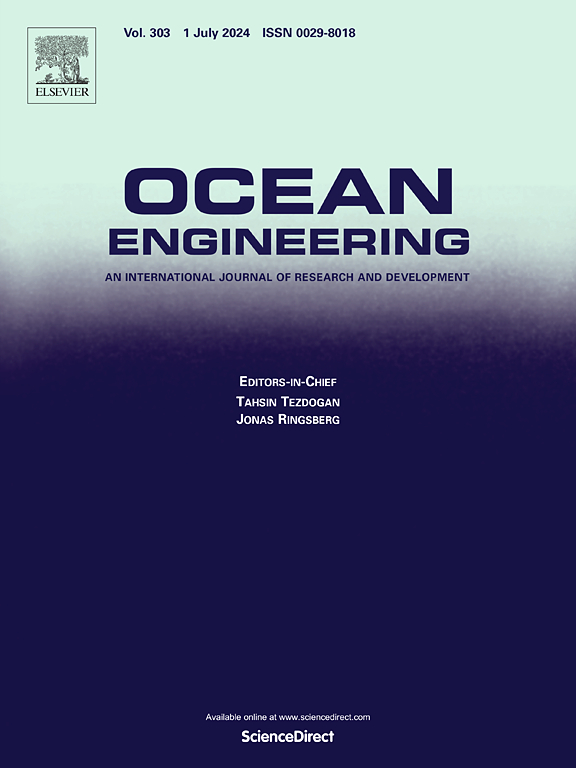Physics-informed temporal convolutional network with auto-regressive residual for significant wave height prediction
IF 4.6
2区 工程技术
Q1 ENGINEERING, CIVIL
引用次数: 0
Abstract
Significant wave height (SWH) serves as a critical metric for assessing marine conditions. While current neural network models have demonstrated considerable success in SWH prediction, their efficacy is frequently limited by the need for more data and the lack of interpretability. Addressing these challenges, we propose a physics-informed temporal convolutional network with auto-regressive residual (PITCN-AR) for SWH prediction, which effectively integrates spatiotemporal dependency information into the training process. First, the PITCN-AR framework utilizes temporal convolutional networks (TCN) as the backbone for the physics-informed neural network. This design adeptively captures the spatiotemporal dependencies of wave height data. To enhance training efficiency and introduce additional dependencies, we integrate an auto-regressive model into the residual block of TCN. Furthermore, TCN is embedded within a hybrid data-physics loss function, and a mini-batch learning strategy is implemented to optimize the performance of PITCN-AR. Finally, the efficacy and practicality of PITCN-AR are rigorously validated using both synthetic and real-world data. Comparative analysis reveals that our model outperforms several state-of-the-art methods, achieving a lower root mean square error and a higher coefficient of determination, thereby underscoring its better predictive accuracy and reliability.

求助全文
约1分钟内获得全文
求助全文
来源期刊

Ocean Engineering
工程技术-工程:大洋
CiteScore
7.30
自引率
34.00%
发文量
2379
审稿时长
8.1 months
期刊介绍:
Ocean Engineering provides a medium for the publication of original research and development work in the field of ocean engineering. Ocean Engineering seeks papers in the following topics.
 求助内容:
求助内容: 应助结果提醒方式:
应助结果提醒方式:


